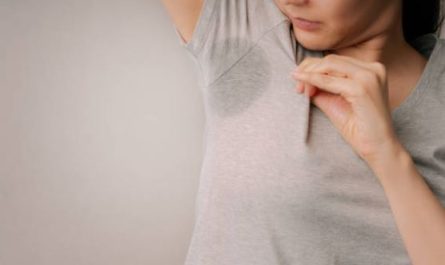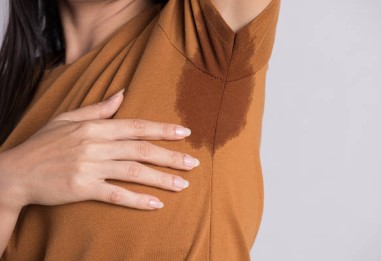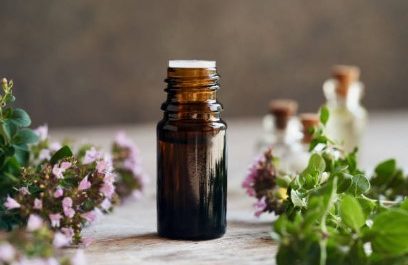Bacteria naturally exist on the skin’s surface, including the underarm area. While some bacteria are harmless or even beneficial, certain factors can contribute to an overgrowth of bacteria in the underarm region, leading to odor. Here are some common causes of bacteria in the underarm area.
Sweat
The underarm region contains many sweat glands, which produce sweat as a way to regulate body temperature. Sweat itself is odorless, but when it comes into contact with bacteria on the skin’s surface, it can create an environment that promotes bacterial growth and odor.
Poor hygiene
Inadequate hygiene practices, such as infrequent bathing or failure to cleanse the underarms properly, can contribute to the buildup of bacteria on the skin. Bacteria thrive in warm and moist environments, so neglecting to clean the underarms regularly can increase the likelihood of bacterial overgrowth and subsequent odor.
Shaving
Shaving the underarm area can create small nicks or cuts, providing an entry point for bacteria to enter the skin. If proper hygiene practices are not followed after shaving, bacteria can accumulate in these tiny wounds and lead to infection or odor.
Tight or occlusive clothing
Wearing tight or occlusive clothing, such as synthetic fabrics or materials that do not allow proper airflow, can create a warm and moist environment in the underarm region. This can increase perspiration and provide an ideal breeding ground for bacteria.
Hormonal changes
Hormonal fluctuations, such as those that occur during puberty, menstruation, or menopause, can lead to increased sweating and changes in body odor. These hormonal shifts can influence the activity of sweat glands and the composition of sweat, creating an environment that is conducive to bacterial growth and odor.
Stress and anxiety
Emotional stress and anxiety can trigger an increase in sweat production, which can contribute to bacterial overgrowth and underarm odor.
It’s important to note that while bacteria play a role in underarm odor, individual body chemistry also influences the specific odor produced. What may cause unpleasant odor in one person may not have the same effect on another.
To manage underarm bacteria and minimize odor, it’s recommended to practice good hygiene, use antibacterial soaps or cleansers, wear breathable clothing, and consider using antiperspirants or deodorants with antibacterial properties. If you have persistent or severe underarm odor concerns, it’s advisable to consult with a healthcare professional or dermatologist for further evaluation and personalized recommendations.
How to Control Underarm body odor?
To address underarm bacteria and reduce underarm odor, here are some treatments and practices you can consider.
Good hygiene
Practicing good hygiene is essential in managing underarm bacteria. Take daily showers or baths using a mild antibacterial soap to cleanse the underarm area thoroughly. Make sure to rinse well and dry the area properly to prevent bacteria growth.
Consider using an antibacterial soap or body wash specifically formulated to target bacteria on the skin. Look for ingredients like tea tree oil or benzoyl peroxide, which have antimicrobial properties.
Dettol Anti Bacterial Original Soap 100g Twin Pack Dermatologically Tested
Proper shaving
If you choose to shave your underarms, make sure to do it properly. Use a clean and sharp razor to avoid irritation and prevent bacteria from entering small cuts or nicks. Consider applying an antibacterial or soothing gel or cream after shaving to minimize irritation and protect the skin.
Topical antibacterial products
There are over-the-counter antibacterial products available that can help reduce underarm bacteria. Look for antiseptic or antibacterial creams or lotions containing ingredients such as benzoyl peroxide or triclosan. Follow the instructions on the product label for proper usage.
Use an antiperspirant or deodorant
Antiperspirants work by reducing sweat production, which can create a less favorable environment for bacteria to thrive. Deodorants, on the other hand, help mask or neutralize odor. Look for antiperspirants or deodorants that also have antibacterial properties to target underarm bacteria.
Natural remedies
Some natural remedies have antimicrobial properties that can help control underarm bacteria. For example, applying a diluted solution of apple cider vinegar or witch hazel to the underarms can help reduce bacteria and odor. Additionally, using a baking soda paste or diluted hydrogen peroxide can help create an inhospitable environment for bacteria.
Clothing and laundry care
Choose breathable fabrics, such as cotton or linen, for your underarm area to allow for better air circulation and minimize sweat buildup. Wash your clothes regularly, especially those that come into direct contact with your underarms, using a good-quality laundry detergent.
Dietary considerations
Certain foods can affect body odor. Limit or avoid the consumption of strong-smelling foods like garlic, onions, spicy foods, and processed foods. Instead, focus on a balanced diet that includes fresh fruits, vegetables, whole grains, and lean proteins.
If you have persistent underarm odor or concerns about excessive sweating, it’s recommended to consult with a healthcare professional or dermatologist. They can evaluate your situation, provide a proper diagnosis, and offer targeted treatment options or recommendations based on your specific needs.








